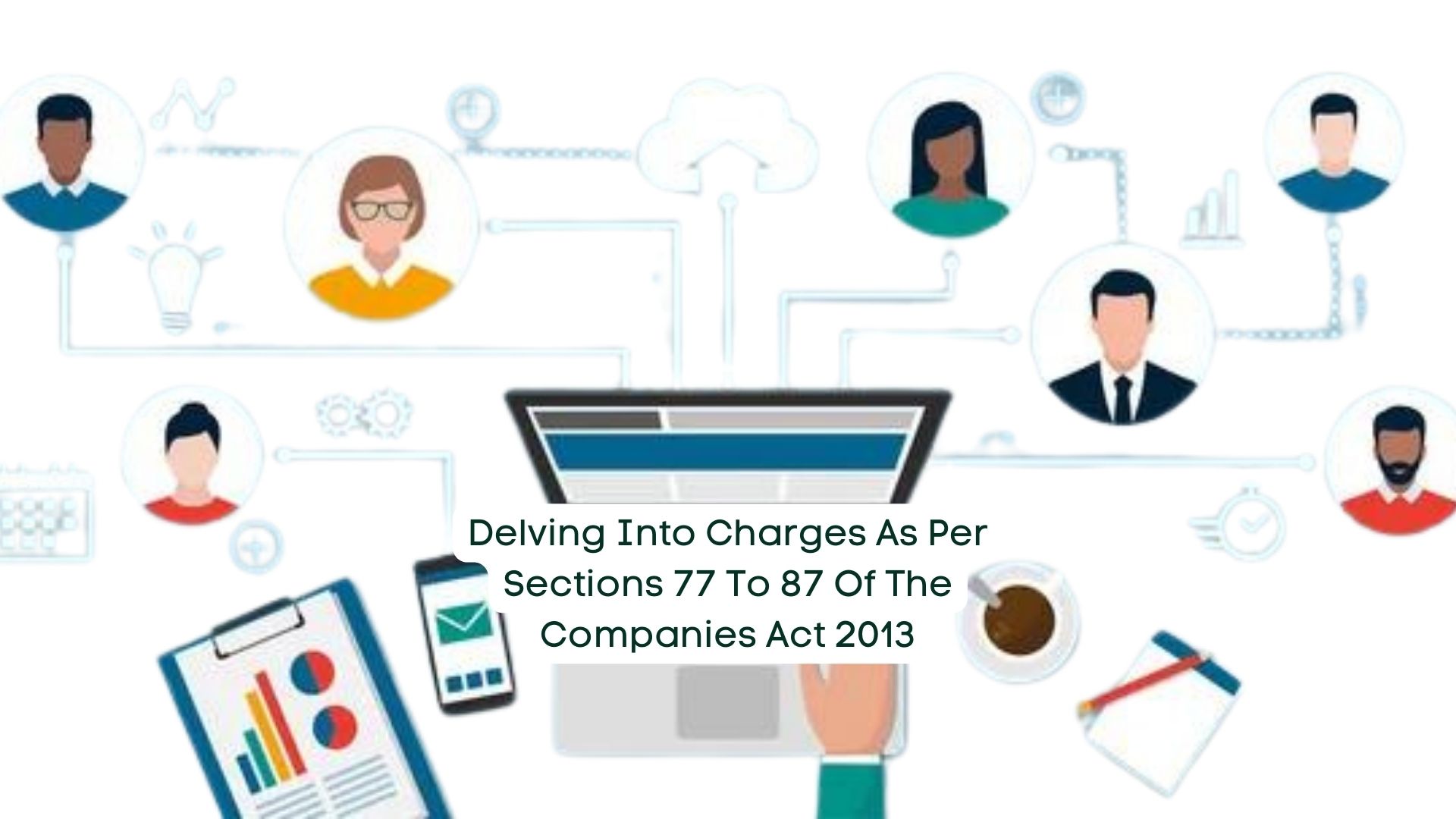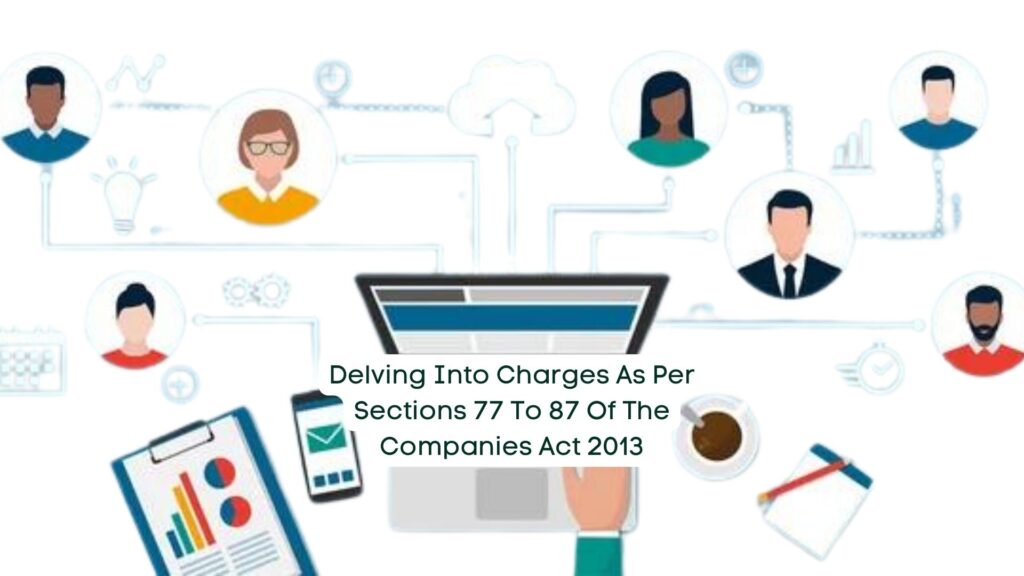
23 Feb Delving into Charges as per Sections 77 to 87 of the Companies Act 2013

When a company seeks financial support for its ventures and expansions, borrowing money becomes a pivotal avenue. In the realm of corporate finance, such borrowings often involve placing charges on the company’s assets as collateral for the lender. This article delves into the nuances of Charges as per Sections 77 to 87 of the Companies Act, 2013.
Charges under Sections 77 to 87 of the Companies Act 2013
The framework for understanding charges is delineated in Sections 77 to 87 of Chapter VI of the Companies Act, 2013. According to Section 2(16) of the Companies Act, 2013, a charge signifies an interest or lien imposed on a company’s property, assets, or undertakings, either individually or collectively, to secure a debt, inclusive of mortgages.
Types of Charges
Under the Companies Act, 2013, charges can be classified into two main types:
- Fixed Charge: This pertains to a charge associated with a specific, identifiable asset or property at the time of the charge's creation. The company cannot transfer such property until the charge holder (creditor) has been fully compensated.
- Floating Charge: This type of charge encompasses the fluctuating and circulating nature of a company's assets, such as diverse debtors or inventory. The identity of the charged assets may vary over time. Upon the company ceasing to operate as a going concern, the floating charge crystallizes into a fixed charge.
Significance of Charges under Sections 77 to 87 of the Companies Act, 2013
Both large and small enterprises often rely on a blend of equity and borrowed capital to fuel their initiatives. Borrowed capital can take various forms, including debentures (secured or unsecured) or loans from financial institutions.
Lending institutions typically require assurances regarding the security of their funds and the repayment schedule. Consequently, they secure their loans by establishing rights over the borrowing company’s assets, creating what is known as a charge on those assets. This is facilitated through the execution of loan agreements, hypothecation agreements, mortgage deeds, and similar documents, obligating the borrowing entity to the lending institutions.
Provisions Applicable to Charges under Sections 77 to 87 of the Companies Act, 2013
The relevant provisions concerning charges under Sections 77 to 87 of the Companies Act, 2013, encompass various aspects:
- Section 77: Mandates the registration of charges with the Registrar of Companies within a stipulated timeframe.
- Section 78: Addresses the procedure when a company fails to register a charge promptly.
- Sections 80 to 86: Detail obligations, penalties, and procedures related to charges, including registration, satisfaction, appointment of receivers or managers, and maintaining records.
- Section 87: Empowers the Central Government to rectify discrepancies or omissions related to charges.
Conclusion
Registering a charge serves the dual purpose of informing the Registrar of Companies and potential lenders about encumbrances on the company’s assets. By consulting the Ministry of Corporate Affairs website, prospective lenders can access the index of charges and relevant forms.


No Comments